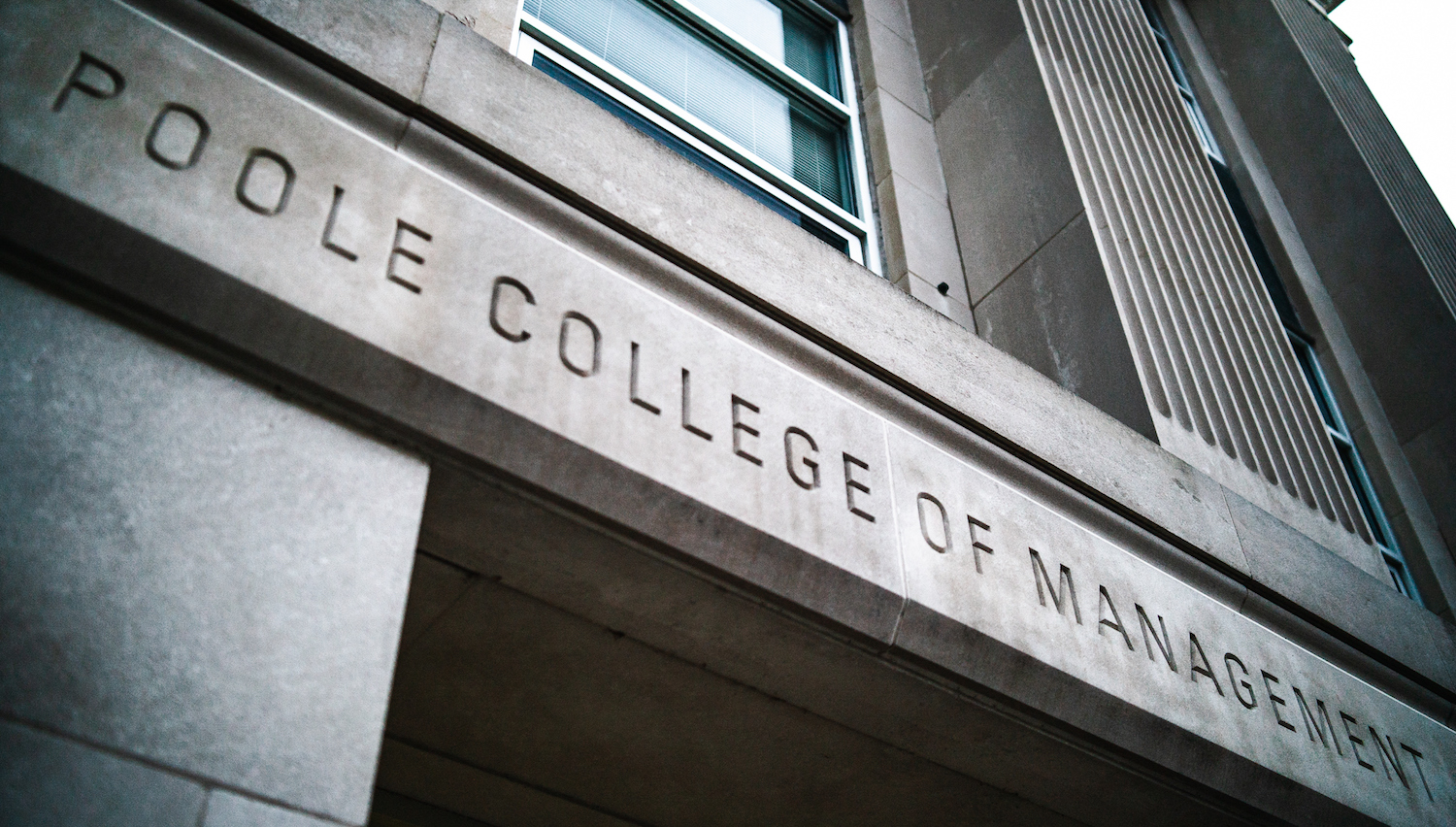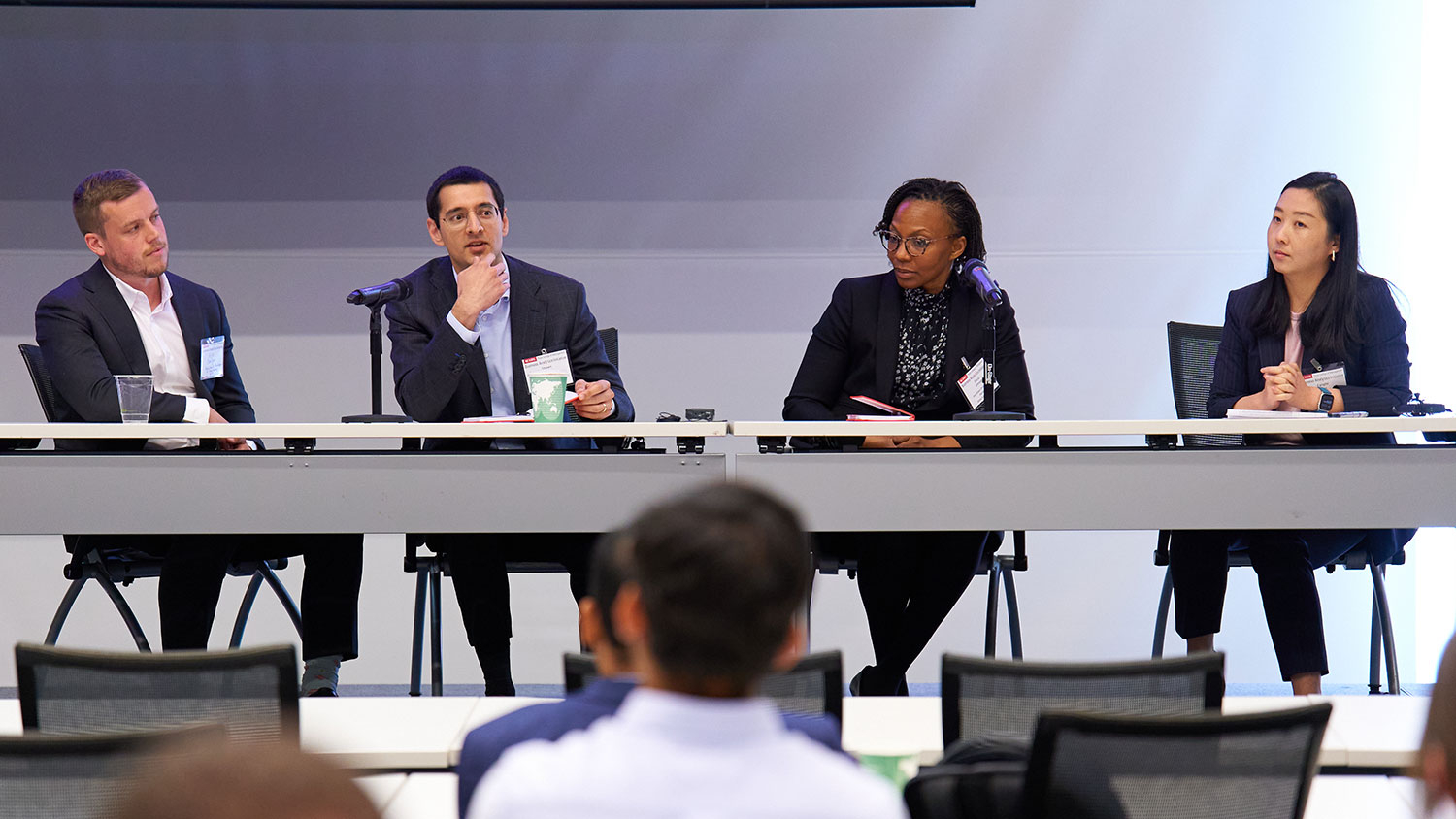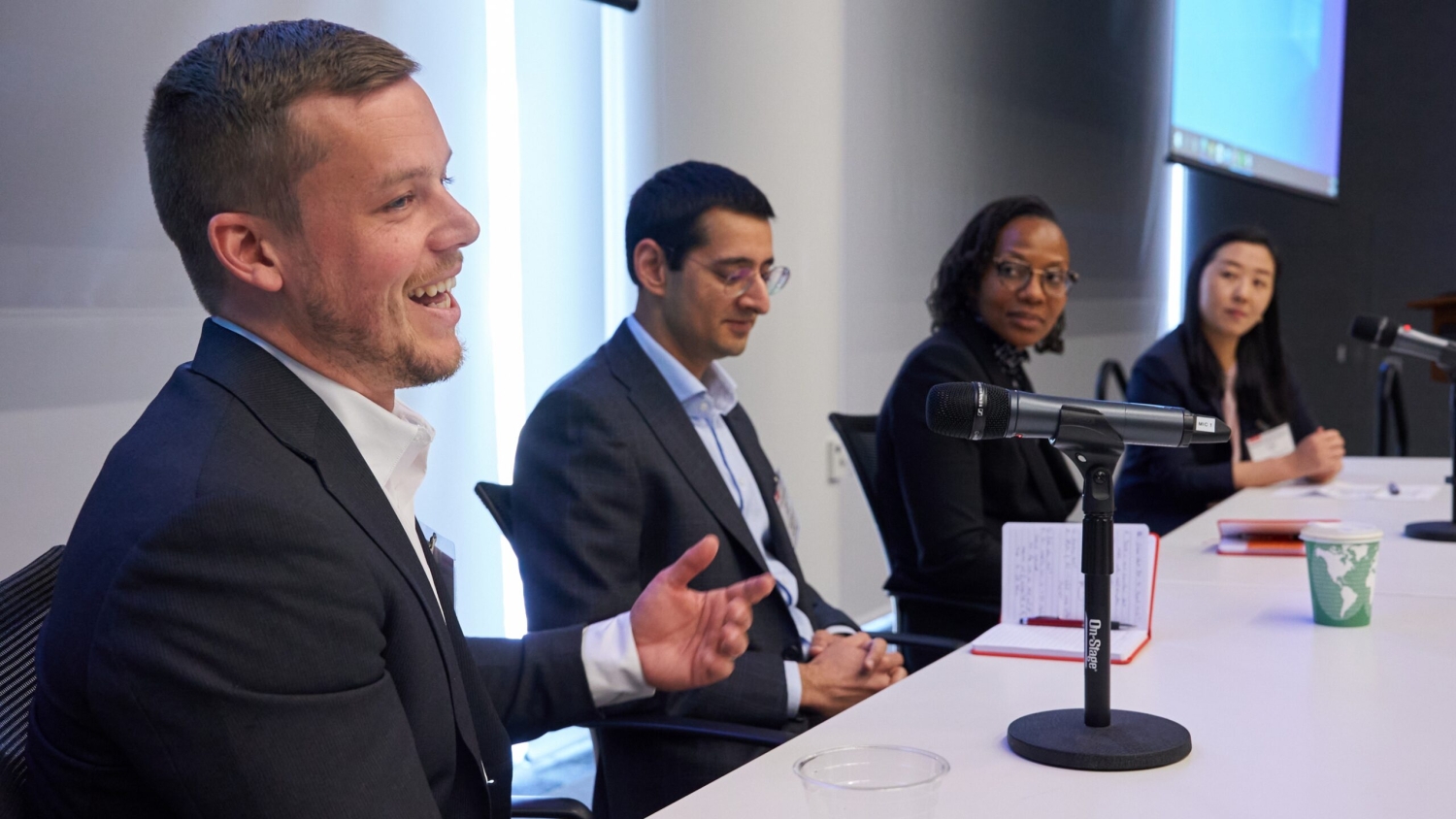A Leader in Sponsored Research, Poole Solves Real Problems in Real Time

By Deborah Strange
With a breadth of faculty expertise and a commitment to solving society’s ever-changing challenges, it isn’t surprising that the Poole College of Management is a leader in sponsored research among business schools.
Sponsored research, or research funded by an external organization like federal, state or private entities, gives faculty members access to greater resources — additional time, access to data and funding to collect new data. With these, Poole faculty leverage their expertise to create real-world impact. Traditional business research can often be overlooked when research results appear only in specialized journals. Sponsored research showcases results to a broader audience, including policymakers and industry leaders.
“Sponsored research can have a direct impact on leaders in government, industry and private foundations,” said Brian Thomas, director of research development and administration at Poole College. “Policymakers in all of these sectors are tasked with solving big problems and overcoming grand challenges. Sponsored research provides evidence-based results to help shape a better future.”
In 2020 NC State received $398 million in new sponsored research awards and ranked second in industry research expenditures among public institutions without a medical school. Conducting sponsored research aligns with NC State’s mission as a land-grant university, which includes the creation and application of knowledge as well as engagement with both public and private partners.
“NC State is a powerhouse in sponsored research,” Thomas said. “At Poole, we want to contribute to that tradition and build on it.” And the college is succeeding. Thanks to top faculty with diverse expertise — from supply chains to pension and retirement planning to social media data analysis — Poole is a go-to college for a broad array of sponsors. The benefits are exponential: When faculty members solve real problems, they show students how it’s done along the way.
“This isn’t just abstract information students are learning about in hypothetical scenarios,” Thomas said. “Our faculty translate their sponsored research findings directly to the classroom. As a result, our students learn in a more meaningful and timely context. It’s real. It’s now.”
Today’s Research Improves the Future
Growing entrepreneurial ecosystems
Sponsored by the Ewing Marion Kauffman Foundation, which fosters education and entrepreneurship in communities, associate professor of entrepreneurship Jeff Pollack is working to develop and validate new metrics to assess how social networks impact venture success and entrepreneurial ecosystems. In examining entrepreneurs’ social network embeddedness and engagement, Pollack’s research will ultimately highlight how government officials, economic developers and other stakeholders can grow effective and efficient entrepreneurial ecosystems.
“As our faculty members engage in sponsored research, it develops and enhances their reputation as thought-leaders,” Thomas said. “Organizations come to them to solve problems and to help them see what’s coming in the future and what they should be prepared for.”
Sustaining retirement well-being of older low- and moderate-income households
When economic systems and policies fluctuate, older individuals in low- and moderate-income households face new challenges. Bob Clark, professor of economics, is leading research sponsored by the Institute of Consumer Money Management (ICMM) to understand these predicaments. Alongside co-investigators at the Wharton School and George Washington University, Clark is studying the economic well-being of older low- and moderate-income (LMI) households and the difficulties they encounter as they transition from work to retirement.
“Poole faculty have very deep domain knowledge. They have the expertise to formulate the right research questions, but sometimes the data simply don’t exist to answer them,” Thomas said. “On Professor Clark’s project with the ICMM, a significant portion of the funding is supporting primary data collection and the development of new data sets.”
Distributing COVID-19 test kits the most effective way
In some cases, sponsored research is life-saving. Rob Handfield and Don Warsing, two faculty members in operations and supply chain management, were awarded a grant from the National Institute for Innovation in Manufacturing Biopharmaceuticals to develop a planning model for optimized COVID-19 test kit distribution and allocation. The model will provide guidance on connecting suppliers to testing centers.
“Sponsored research in Poole combines our faculty expertise with external resources to have real-world impact on the challenges and problems facing society,” Thomas said.
This post was originally published in Poole Business Magazine.
- Categories:


